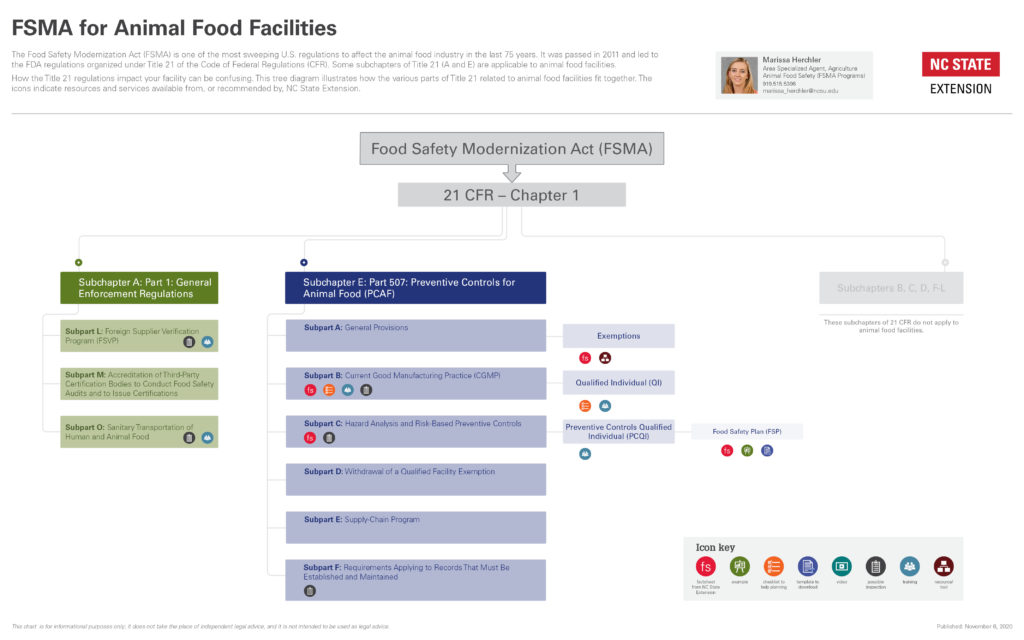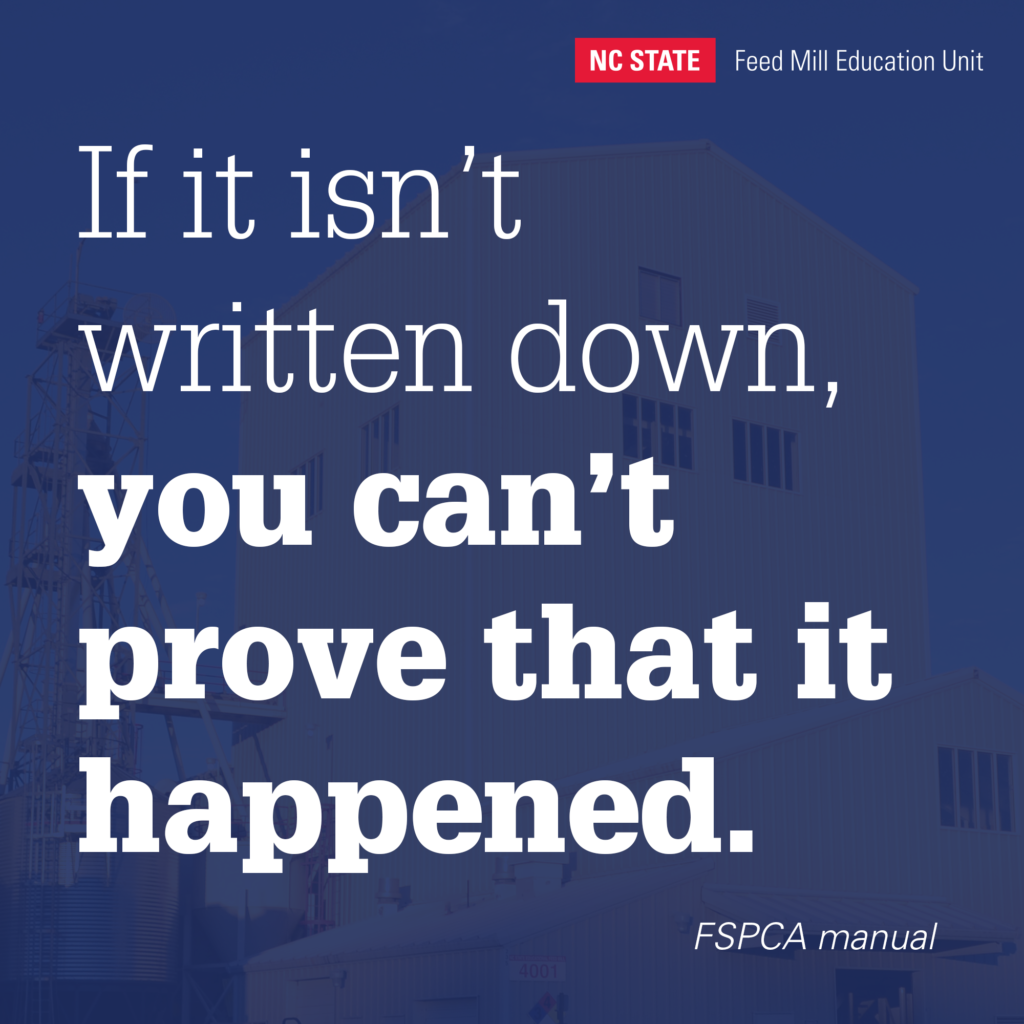Food Safety Modernization Act
go.ncsu.edu/readext?494240
en Español / em Português
El inglés es el idioma de control de esta página. En la medida en que haya algún conflicto entre la traducción al inglés y la traducción, el inglés prevalece.
Al hacer clic en el enlace de traducción se activa un servicio de traducción gratuito para convertir la página al español. Al igual que con cualquier traducción por Internet, la conversión no es sensible al contexto y puede que no traduzca el texto en su significado original. NC State Extension no garantiza la exactitud del texto traducido. Por favor, tenga en cuenta que algunas aplicaciones y/o servicios pueden no funcionar como se espera cuando se traducen.
Português
Inglês é o idioma de controle desta página. Na medida que haja algum conflito entre o texto original em Inglês e a tradução, o Inglês prevalece.
Ao clicar no link de tradução, um serviço gratuito de tradução será ativado para converter a página para o Português. Como em qualquer tradução pela internet, a conversão não é sensivel ao contexto e pode não ocorrer a tradução para o significado orginal. O serviço de Extensão da Carolina do Norte (NC State Extension) não garante a exatidão do texto traduzido. Por favor, observe que algumas funções ou serviços podem não funcionar como esperado após a tradução.
English
English is the controlling language of this page. To the extent there is any conflict between the English text and the translation, English controls.
Clicking on the translation link activates a free translation service to convert the page to Spanish. As with any Internet translation, the conversion is not context-sensitive and may not translate the text to its original meaning. NC State Extension does not guarantee the accuracy of the translated text. Please note that some applications and/or services may not function as expected when translated.
Collapse ▲The Food Safety Modernization Act (FSMA) of 2011 can be difficult to implement because it is so far-reaching. These pages explain some of the components of the rules that impact food for animals.
This page provides information about what FSMA is and how North Carolina and NC State Extension have responded to new rules and regulations prompted by FSMA.
About FSMA
The Food Safety Modernization Act (FSMA) is one of the most sweeping regulations to affect the feed industry in the last 75 years. It was passed in January of 2011 and led to the U.S. Food and Drug Administration (FDA) developing regulations under Title 21 of the CFR. Subchapters A and E of Chapter 1 of Title 21 apply to animal food manufacturing.
A great resource is the FDA video Safe Animal Feed (5:11) that emphasizes the role animal food manufacturers play in maintaining a safe food supply in the United States.
FSMA has led to inspections of facilities for Current Good Manufacturing Practice (CGMP) and the development of a written food safety plan with a hazard analysis and any risk-based preventive controls. For an overview of how FSMA led to various FDA regulations, see our diagram below.
FSMA is a documentation rule. It’s important to remember: If it isn’t written down, you can’t prove that it happened.
In general, facilities that are required to register under the Bioterrorism Act of 2002 are required to comply with FSMA.
Establishments, including farms, that are not required to register under section 415 of the Federal Food, Drug, and Cosmetic Act (FD&C Act) are not required to comply with any part of the rule. Get more information on our PCAF: Exemptions page.
FSMA in North Carolina
North Carolina has been proactive in preparing for the new food safety regulations introduced by the Food Safety Modernization Act (FSMA).
These new regulations focus on shifting food safety structures from a reactive to a proactive system. For the first time, feed manufacturing facilities are subject to Current Good Manufacturing Practice (CGMP) inspections by the FDA (these are in addition to medicated feed CGMP inspections).
Each state is unique, so inspections may be performed by FDA inspectors or state agencies that are contracted through the FDA. The North Carolina Department of Agriculture and Consumer Services (NCDA&CS) will be performing CGMP and Hazard Analysis inspections in the state of North Carolina as contractors for the FDA.
Facilities should anticipate being inspected for multiple regulations at a time, if applicable, such as Bovine Spongiform Encephalopathy (BSE), Veterinary Feed Directive and Medicated Feed regulations.
Inspections can last several days and multiple investigators may show up. This is not unusual, as investigators are also learning how to implement these new regulations.
FSMA and NC State Extension
As part of the proactive nature of the new regulations, NC State Extension hired an Area Specialized Agent for animal food safety. Marissa Herchler joined the feed milling program in August 2016 and has been working to provide training, resources and guidance for North Carolina animal food manufacturers.
FSMA Training Resources from NC State Extension
NC State Extension facilitates Preventive Controls for Animal Food courses. These courses offer an on-demand schedule once enough people have expressed interest in attending the course. Anyone interested in participating in a Preventive Controls for Animal Food course and becoming a Preventive Controls Qualified Individual (PCQI) should contact Marissa Herchler Cohen.
In addition to the Preventive Controls for Animal Food PCQI course, NC State Extension offers a free qualified individual training course focusing on animal food safety and personal hygiene to help meet the training requirements of the FSMA Preventive Controls for Animal Food rule. For more information about this training course, visit our FSMA Qualified Individual Animal Food Safety Training page. Contact Marissa Herchler Cohen with any questions about this course.
For more information about courses, programs and support available from NC State Feed Milling Extension, contact Marissa Herchler Cohen.
For additional information contact
Marissa Herchler Cohen
NC State University
Cooperative Extension Service
Prestage Department of Poultry Science
234 D Scott Hall
Raleigh, NC 27695-7608
E-mail: marissa_cohen@ncsu.edu
Phone: +1 919.515.5396




